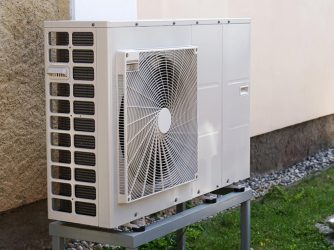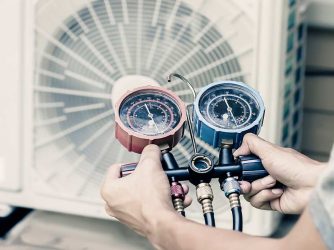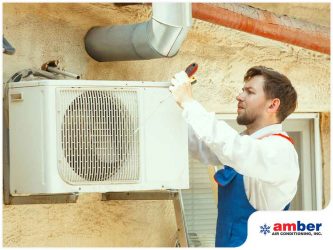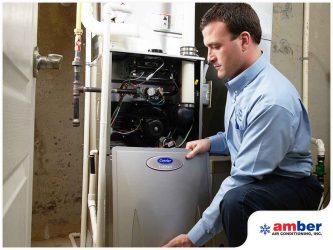There are several criteria that homeowners need to have when buying a major piece of home equipment like a heat pump. Warranty coverage, brand, repairability — all of these are important. In today’s post, Amber Air Conditioning Inc. takes a look at another criteria, energy efficiency, and how performance ratings can help you find the best heat pump for your home.
All About the Heat Pump’s Typical Life Span
Heat pumps are essential comfort systems in many homes, given their energy efficiency and ability to provide both heating and cooling. However, some factors can cause its life span to degrade faster than usual. As a top-quality heating and air conditioning company, Amber Air Conditioning Inc. will share the factors that affect a heat pump’s life span and give you some tips on extending it.
How Can a Bad Capacitor Affect Your HVAC System?
Capacitors are a miniscule component relative to an HVAC system, yet when it goes bad, there will be noticeable effects. In this blog, Amber HVAC discusses what makes capacitors important to heating and cooling systems.
Key Differences Between Furnaces and Heat Pumps
Heat pumps and furnaces are two of today’s most popular heating systems. In this blog, our experienced Amber HVAC technicians discuss the differences between the two, and how to determine which one is best for your home.
What Is The Difference Between A Furnace And A Heat Pump?
A heat pump generally refers to a device that is used to transfer heat in freezers, air conditioners and refrigerators among others. Mechanical energy is converted into thermal energy as a function of the heat pump in these machines. Refrigerants, which are fluids that are also used in the process, aid the heat pump to carry out this task. Carbon dioxide and chlorofluorocarbon are popular examples of these fluids. Different machines have different output requirement and the heat pump functions to lower temperatures or heat atmosphere as required in each case. The only purpose of a furnace on the other hand, is to provide heating. A furnace does not provide cooling. Some examples of the several sources that the furnace uses to produce heat include wood, fuel oil, natural gas, liquefied petroleum gas (LPG), coal and oil. A furnace is often found to generate heat for boilers, kilns and ovens. The heat pump is the […]











